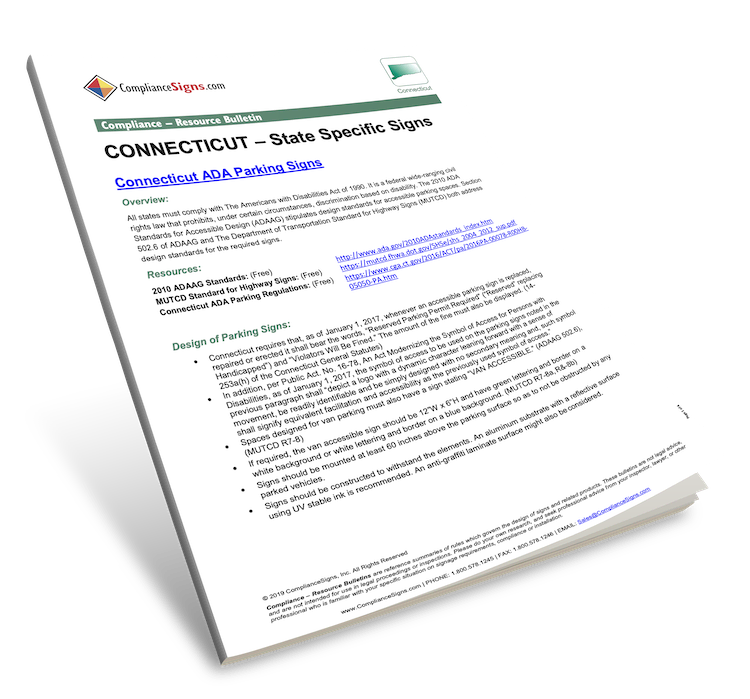
Connecticut State Sign Regulations
Our Connecticut State-Specific Signs Compliance – Resource Bulletin will help you understand a variety of signage rules, regulations and requirements enacted in the state. Topics include:
- No smoking signs
- Swimming pool signs
- Concealed weapon signs
- Cell phone signs
- Baby surrender signs
Use the Download button to open this bulletin as a pdf file.
Bulletin Overview
No Smoking Signs
The State of Connecticut prohibits smoking in all workplaces including bars and restaurants. Smoking is also banned in restaurant outdoor seating areas that have a ceiling. Exemptions to the statewide ban are granted to tobacco bars, correctional facilities, psychiatric facilities, public housing projects, private clubs, and tobacco research facilities. The Connecticut Clean Air Act (CCAA) became law on 10/1/2003 and is administered by the Department of Public Health. (Sec.19a-342)
Swimming Pool Signs
The Connecticut Department of Public Health stipulates the rules governing the use of public swimming pools and spas. The code became effective on 9/1/2004 and requires the posting of signs at public swimming pools and spas.
Concealed Weapon Signs
Connecticut allows residents of the state to carry a concealed firearm (CCW) provided they have been issued a permit granted by the local city or county in which they reside. Among the requirements for issuing a permit are; an applicant must be free from a conviction of a felony, does not have a documented addiction to alcohol or a controlled substance, does not have a serious mental illness, and has completed an approved firearm training program. There are certain places such as, schools, government buildings, courthouses, etc. where CCW is forbidden even with a permit. Connecticut does not honor the CCW of any other state. (Chap 529 sec 29-28), (Chap 529 sec 53a-217b)
Cell Phone Signs
The State of Connecticut bans the use of hand-held cell phones for texting communications by all drivers of motorized vehicles. Drivers over 18 years old must use hands-free devices while talking on cell phones. Drivers under 18 and school bus drivers are prohibited from using any wireless communication device. The law, SB427, became effective on 6/6/2010.
Baby Surrender Signs
Since the first baby surrender (safe-haven) law was enacted in Texas in 1999, all U.S. states, as well as the District of Columbia, have passed safe-haven legislation. The laws allow an unharmed infant to be relinquished to the proper authorities.


